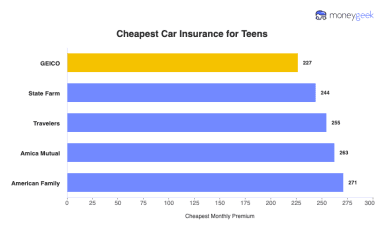Permissive use coverage from your parents' insurance covers you when you borrow their car occasionally with permission. Coverage applies differently depending on the situation, who's at fault and how often you drive the vehicle.
If you regularly commute with your parent's car, you'll need to join your parents' policy as a named driver. Call your parents' insurer to clarify the rules before making it a habit.
Yes, you can drive your parents' car with their insurance through permissive use coverage. Auto insurance follows the vehicle, not the driver. When you borrow their car with permission, their insurance automatically covers you.
What their insurance covers when you drive:
- Liability coverage protects you if you cause an accident. It pays for damage to other vehicles, property and injuries to other people. This coverage has no deductible and applies immediately when you're driving with permission.
- Comprehensive and collision coverage (if they have it) covers damage to their vehicle. Comprehensive covers non-collision events like theft, vandalism, weather damage or hitting an animal. Collision covers damage from accidents regardless of who's at fault. Both coverages require paying the deductible before insurance pays the rest.
- Uninsured/underinsured motorist coverage protects you if another driver hits you and doesn't have adequate insurance. This coverage applies when you're driving your parents' car with permission.
This arrangement works for occasional use only. Borrowing the car a few times per month qualifies as occasional. Driving it weekly or daily requires being added to the policy as a named driver.







